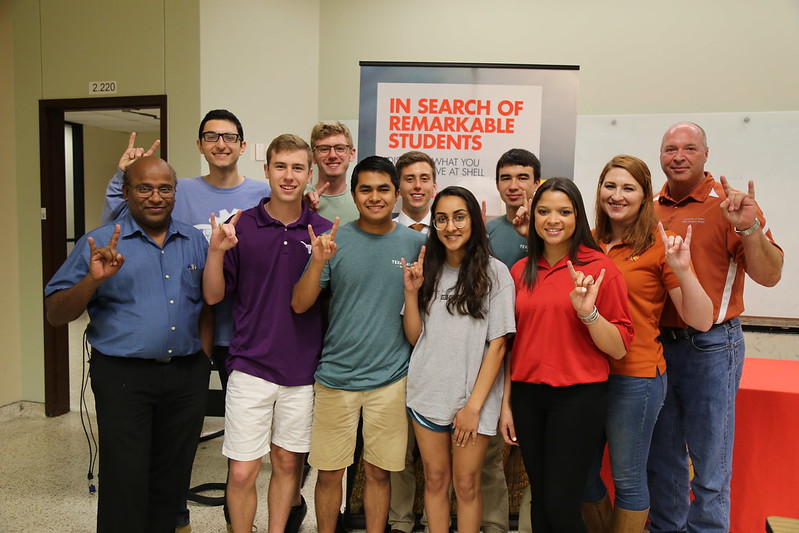Shell supports student learning through process safety course
This spring, Shell partnered with the McKetta Department of Chemical Engineering to deliver an updated section of CHE 364S Chemical Process Safety. The module-enriched curriculum was taught by Texas ChE’s Dr. Thomas Edison and was designed to teach students about all aspects of chemical process safety and loss prevention and included lectures from Shell process safety experts.
“Industry has become increasingly focused on implementing high safety standards and Shell has been a leader in creating and promoting a strong safety culture,” says Tom Truskett, department chair. “This makes Shell a great partner to help deliver and enhance this course by providing a module and guest lecture featuring real-world scenarios and valuable, first-hand insight directly from Shell safety experts.”
Natalie Salter, General Manager of Process Safety Downstream at Shell, gave instruction on process hazard analysis, risk assessment and incident investigations and cited industry examples of situations where loss was or could have been prevented. “Preventing a potentially hazardous situation before it happens is the one of the most important and rewarding things I do. My goal is for everyone to go home safely every day,” says Salter. “For a career in industry, understanding the equipment limits, having the right training and knowing how to react to certain situations is crucial and I am honored that Texas ChE allowed me the opportunity to come share my experiences with their students.”
Salter’s unique perspective enhanced student’s understanding of concepts learned in class and provided them with skills typically learned on the job.
Texas ChE alum Kate (Conroy) O’Mara, Quality and Lab Manager, Houston Lubricants Plant and Technical Recruiting Manager at Shell, says, “Being in the workforce now, I would have loved to have had a process safety class as an undergrad; there are so many safety and loss prevention principles that are typically only learned on the job that these students are learning now. As a recruiter in my current capacity, they will have a huge competitive advantage right out of the gate.”
Traditionally, the word “safety” has referred to accident prevention through the use of hard hats, safety shoes and a variety of rules and regulations, with an emphasis on worker safety. In recent years, industry has replaced by the notion of “safety” with “loss prevention,” which includes hazard identification, risk analysis and the design of new engineering features to prevent loss.
Garry Morehead, Operations Technical Support Manager and Shell Upstream Unconventionals, Americas, says, “Shell has a clear commitment to safety and the environment. Anything we can do to prevent a future incident within our own company, the community, or other companies, we want to help. Our partnership with Texas ChE allows us the opportunity to give future engineers the tools they need to recognize hazards and prevent those types of accidents.”
The design and development of new safety measures gave students a sound understanding of engineering fundamentals and application of complex theories in practice. The course emphasizes quantitative engineering analysis based on the application of mass and energy balances, fluid mechanics of incompressible, compressible and two-phase fluids, heat transfer and conservation of energy, diffusion and dispersion under highly variable conditions, reaction kinetics and process control. Students were also introduced to probabilistic and statistical methods to characterize accident and loss performance.
The department and Shell plan to continue to offer this updated, module-enriched class.
Tags: Alumni, McKetta Department of Chemical Engineering, process safety course, Shell oil, Texas ChE


